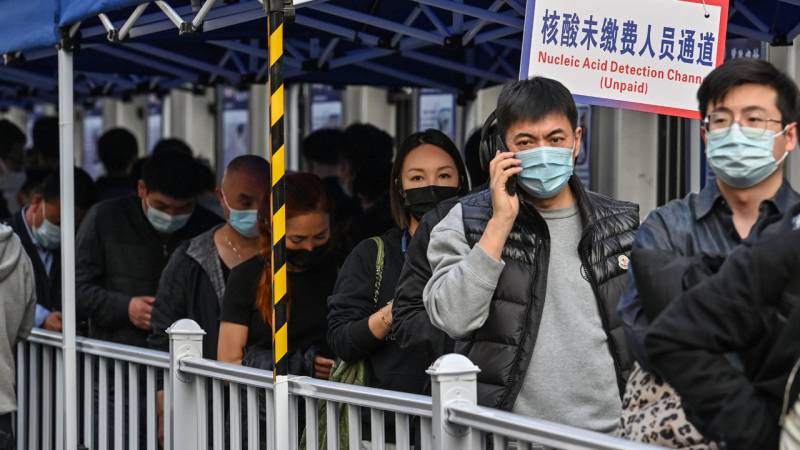On Friday, a nine-million-strong Chinese city was put on lockdown, and Shanghai's schools were closed as officials tried to put an end to a Covid-19 outbreak that has pushed nationwide cases to their highest levels in two years.
Changchun, the capital of northeastern Jilin province and a major industrial center, has ordered citizens to stay at home, with one person allowed out every two days to purchase "basic needs."
The city also halted all public transportation, ordered schools and businesses to close, and announced that mass testing will be conducted.
For the first time since the pandemic began in 2020, China's daily coronavirus case count surpassed 1,000 this week.
This is rising from fewer than 100 cases just three weeks ago, as China's zero-Covid stance to combating the epidemic is tested by the highly transmissible Omicron form.
Covid-19 was originally discovered in China in late 2019, however due to a mix of snap lockdowns, mass testing, and largely controlled borders, the government has kept the number of cases to a bare minimum by international standards.
According to Friday's daily official tally, there were 1,369 cases spread across more than a dozen provinces.
Jilin, which has reported hundreds of instances in recent days, is one of more than a dozen provinces, as well as major cities like Beijing and Shanghai, that are experiencing an increase.
After hundreds of cases surfaced in the eastern economic powerhouse in recent days, Shanghai ordered its schools to close and convert to online education for the time being.
As the number of cases grew, the country's National Health Commission said on Friday that fast antigen tests will be used.
The kits will now be accessible for clinics and regular residents to purchase for "self-testing" online or at pharmacies, according to the health commission, while nucleic acid tests will remain the primary method of testing.
The government has staked a lot of pride on its ability to regulate Covid-19, and Friday's actions looked to put an end to any thoughts that China will abandon its disruptive zero-tolerance policy anytime soon.
The downsides of a zero-Covid policy have been shown in Hong Kong, where conflicting instructions from the local authorities have fueled food stockpiling and public worries of people being detained.
Mainland The most recent significant Chinese lockdown occurred in December, when an outbreak forced the city of Xi'an to keep its 13 million residents at home for two weeks.
However, in the face of growing pandemic fatigue, top Chinese officials have urged local officials around the country to avoid such harsh measures in recent weeks.




